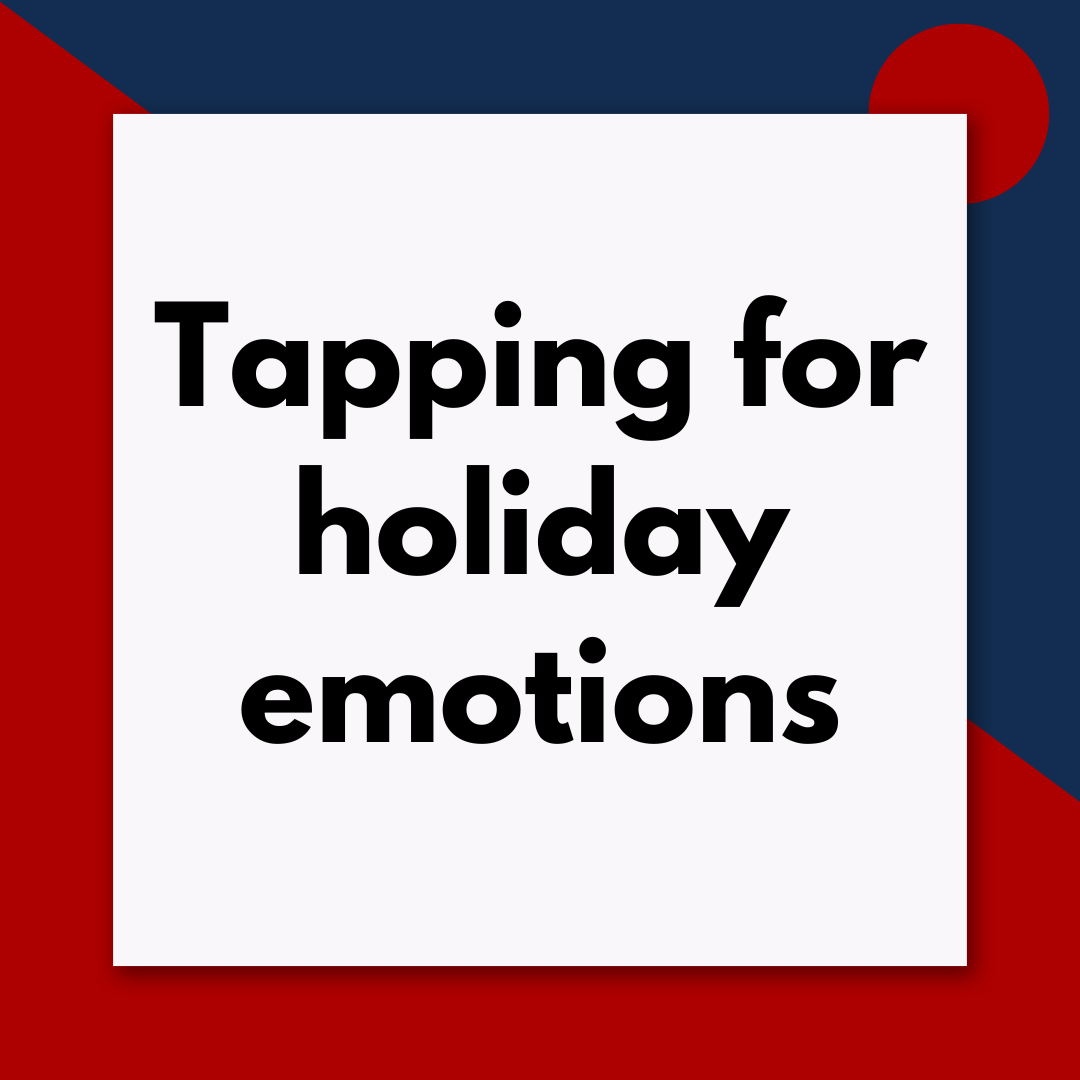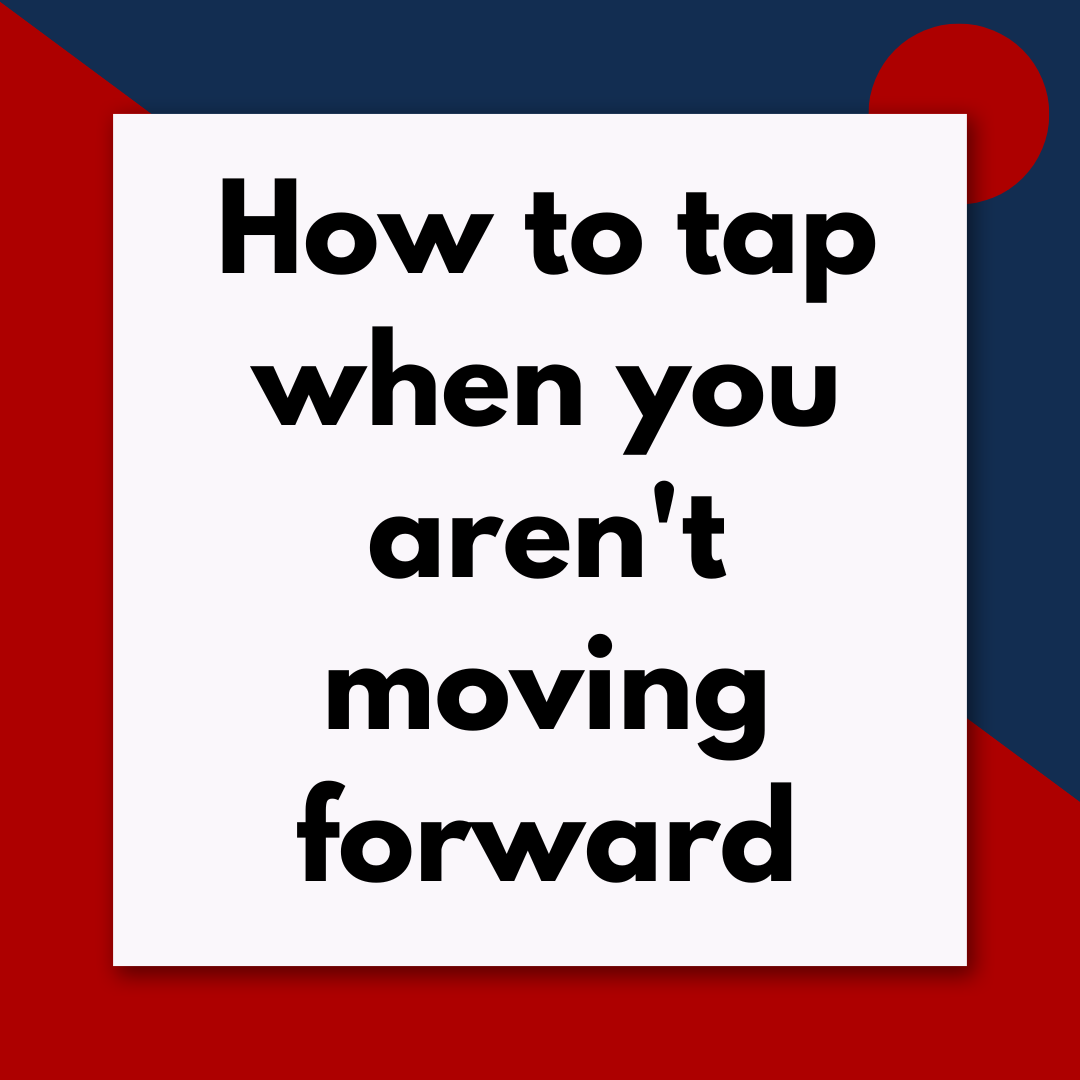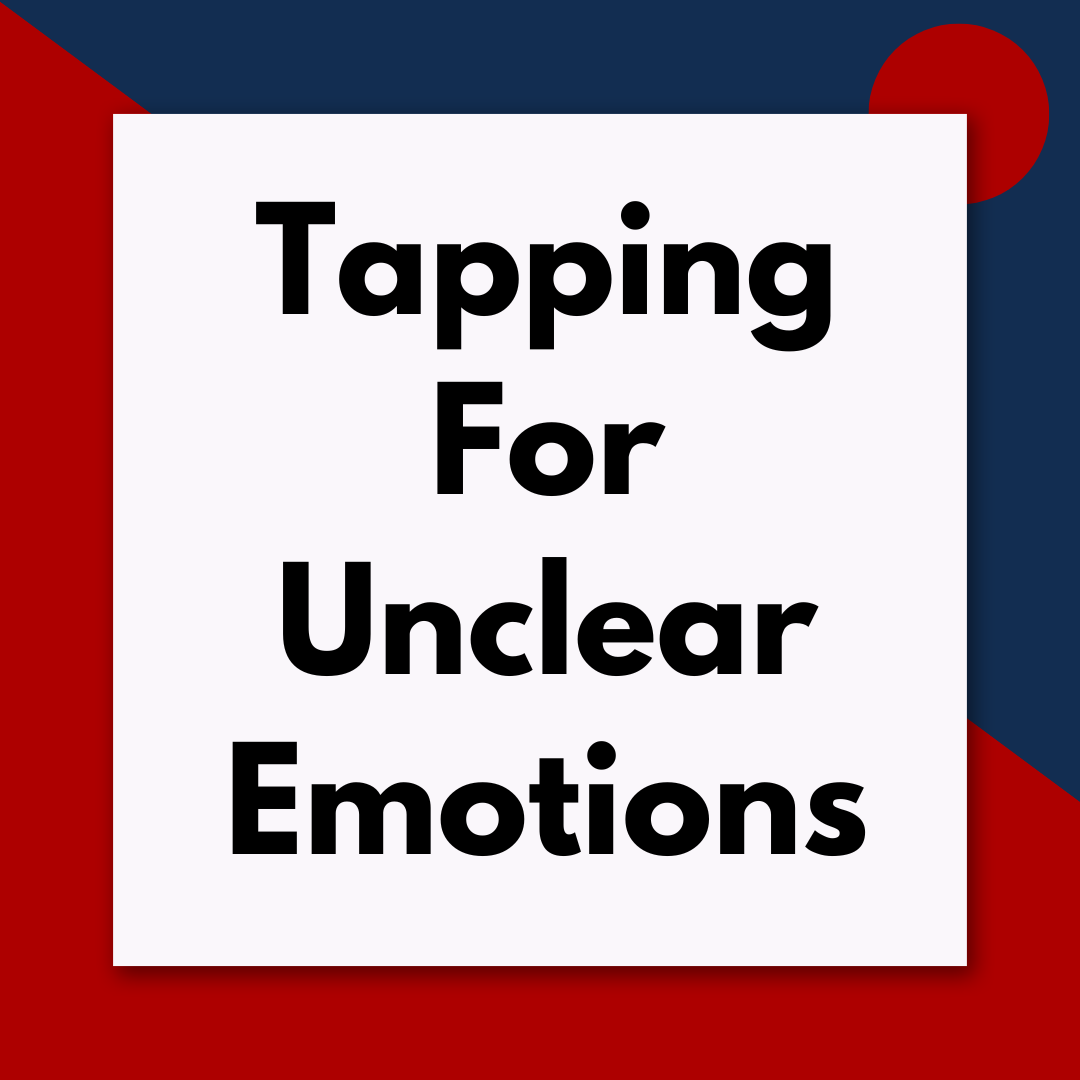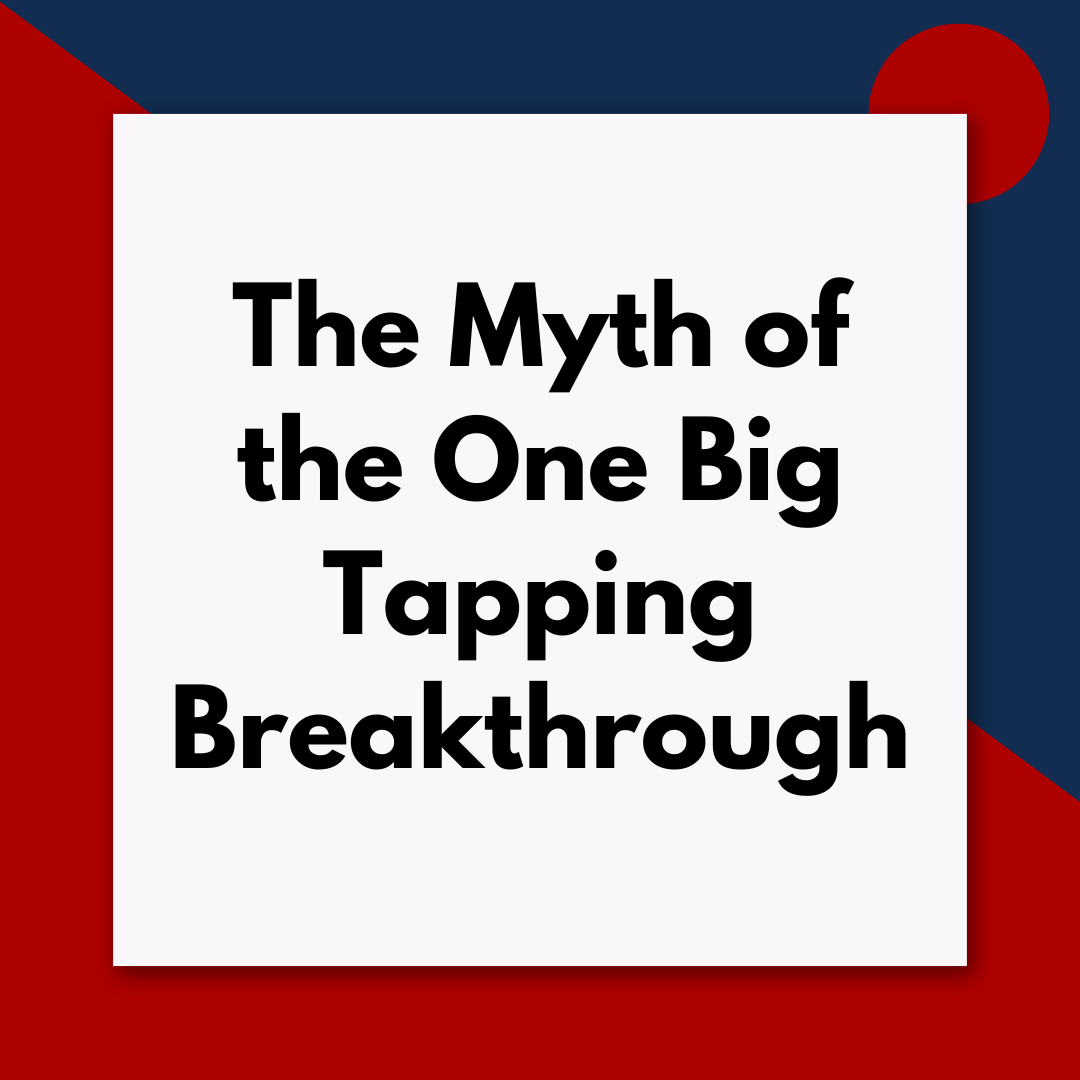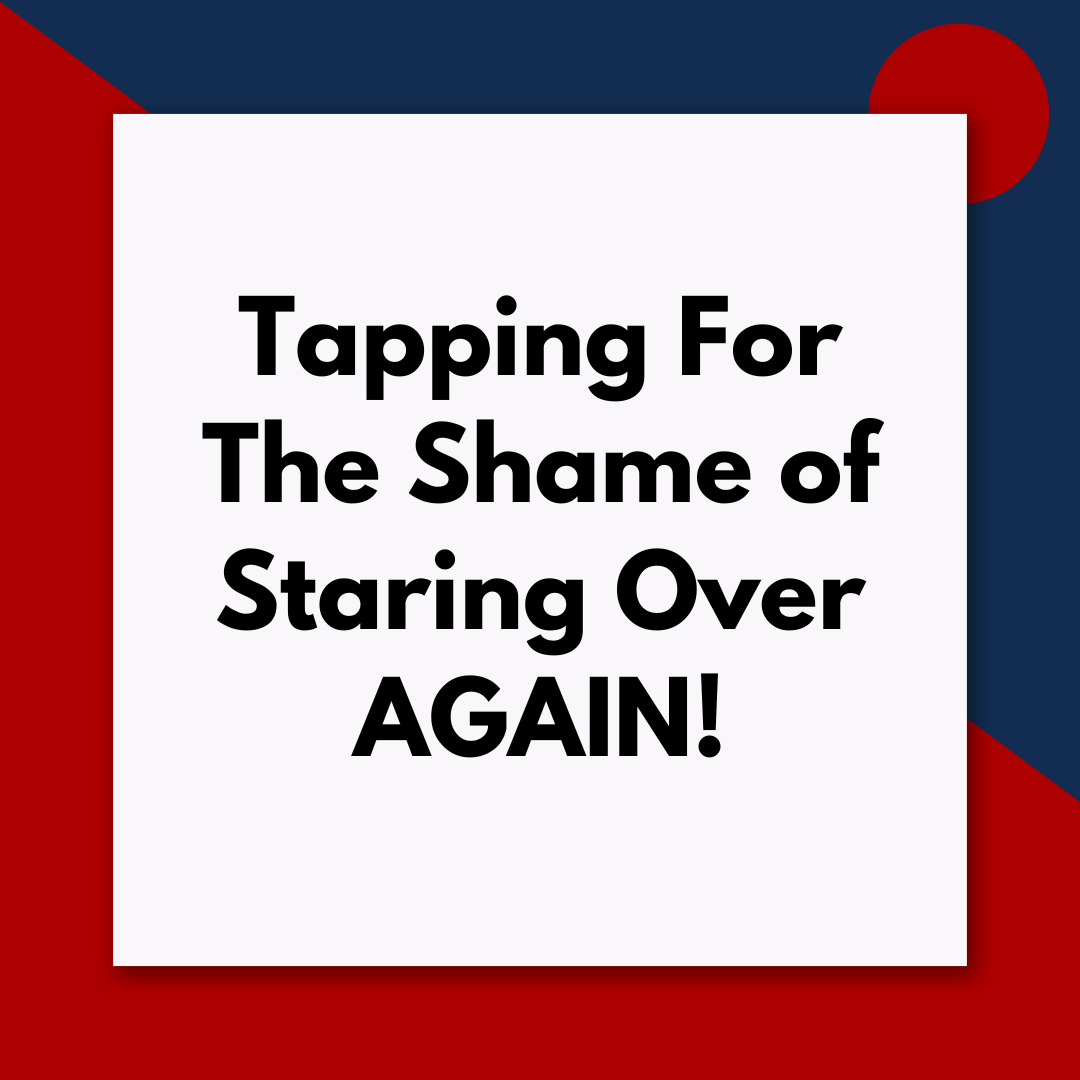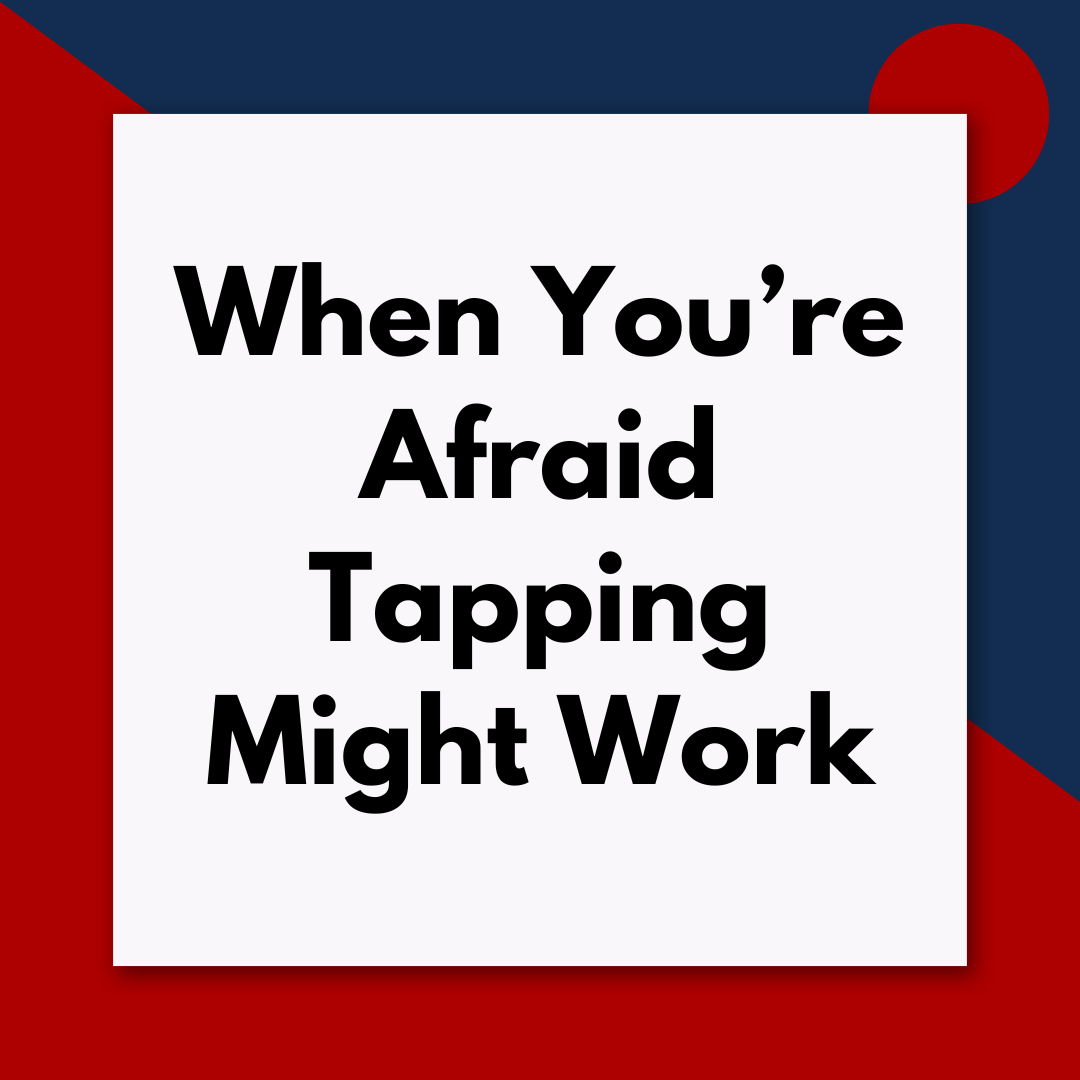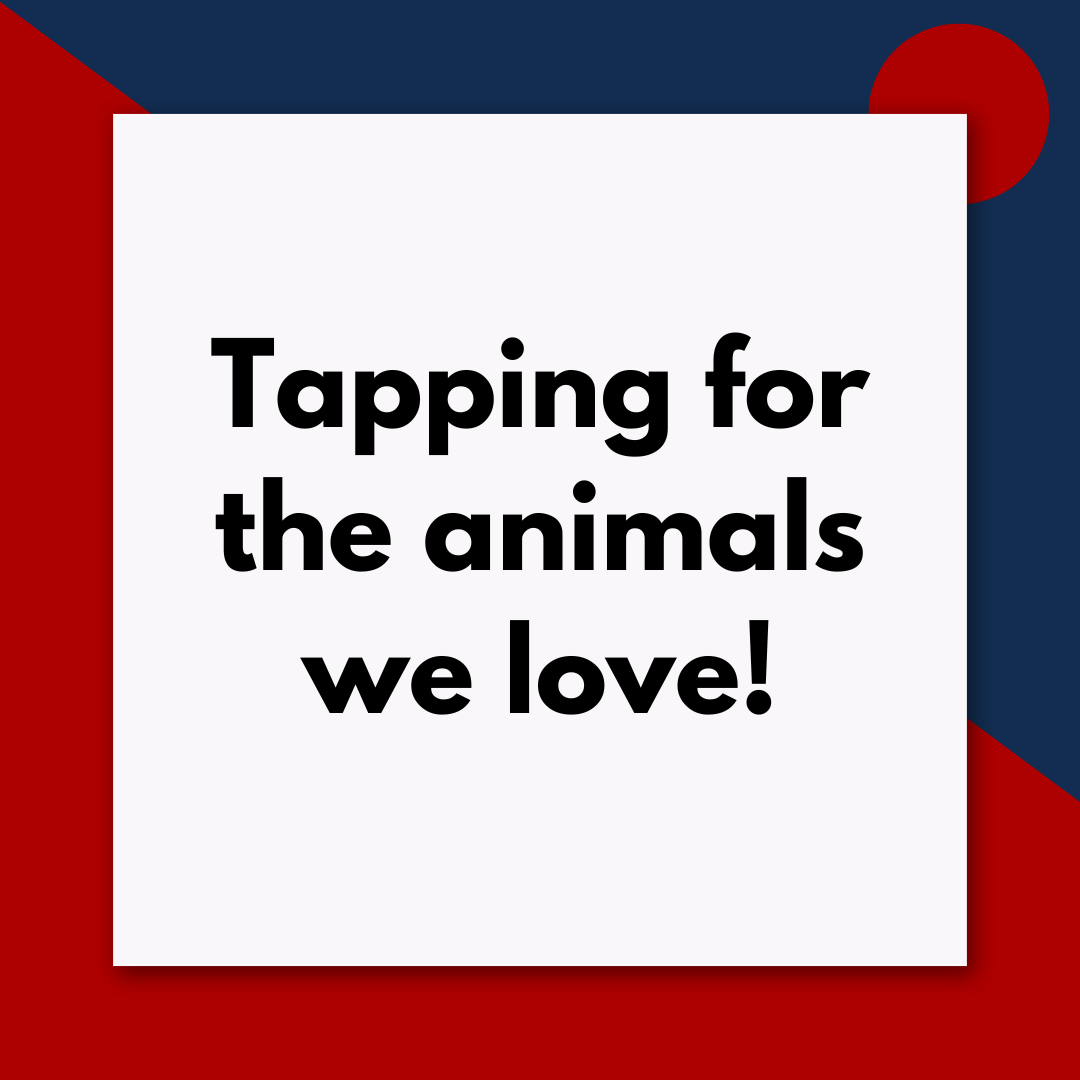Discover Tapping Q & A - Getting the most out of tapping and EFT
Tapping Q & A - Getting the most out of tapping and EFT

Tapping Q & A - Getting the most out of tapping and EFT
Author: Gene Monterastelli
Subscribed: 535Played: 14,635Subscribe
Share
© Gene Monterastelli 2007-2020
Description
EFT (Emotional Freedom Techniques) Tapping is a powerful tool for reducing pain, physical trauma, and eliminating limiting beliefs. Each week tapping expert, Gene Monterastelli, and his amazing guests answer the most common (and uncommon) questions on how to get the most out of EFT. If you want to maximize your success with tapping, this is an indispensable resource.
The host of the Tapping Q & A Podcast, Gene Monterastelli, works one-on-one with small business owners and entrepreneurs to help them eliminate self-sabotage so that they can take the actions they need to take to be successful, starting with the most important tasks first.
Past guests of the show have included Mary Ayers, Dr. Peta Stapleton, Julie Schiffman, Brad Yates, Rick Hanson, Ph.D., Mark Wolynn, Rick Wilkes, Carol Look, Steve Wells, and Jessica Ortner.
The host of the Tapping Q & A Podcast, Gene Monterastelli, works one-on-one with small business owners and entrepreneurs to help them eliminate self-sabotage so that they can take the actions they need to take to be successful, starting with the most important tasks first.
Past guests of the show have included Mary Ayers, Dr. Peta Stapleton, Julie Schiffman, Brad Yates, Rick Hanson, Ph.D., Mark Wolynn, Rick Wilkes, Carol Look, Steve Wells, and Jessica Ortner.
685 Episodes
Reverse
I love to learn and in the first decade of my tapping life, I consumed everything I could about tapping and transformation. I subscribed to every newsletter I could find, I listened to podcasts, read books, and attended many live trainings. In the process, I came across the work of Milton Erikson, the founder of the American Society for Clinical Hypnosis, who is often referred to as the Dean of American Hypnosis. Right away, I latched on to his idea that "All transformation starts by stating what is." By this, Milton Erikson meant that we cannot create real and lasting change until we level with ourselves. If we are unwilling to be honest about what we are struggling with and where we are stuck, then it is practically impossible to create meaningful change. I see this idea as so important that if you go back and listen to any of the tap-alongs I have created in the last 10 years, you will find reference to this idea. In this week's podcast, I share with you how I employ this idea in my tapping, and how you can add it to your tapping right away! Support the podcast! Http://tappingqanda.com/support Subscribe in: Apple Podcast | iPhone | Android | Google Podcast | Spotify | Pandora | Amazon Music | iHeartRadio
Scientific research is increasingly backing up what those of us in the space of transformation have known for decades: our emotional health impacts our physical health. On one level, this is very exciting. It offers us fresh ways to think about the healing process and frees us from only thinking about the body as a machine that sometimes breaks down. On another level, it brings a new level of complexity to the healing process. When we experience physical discomfort, is that because of a physical issue, an emotional issue…or both? These new options may make deciding on the best path to healing more difficult. In this week's podcast I explore how I think about both physical and emotional issues AND how to figure out where to start with your tapping. Support the podcast! Http://tappingqanda.com/support Subscribe in: Apple Podcast | iPhone | Android | Google Podcast | Spotify | Pandora | Amazon Music | iHeartRadio
In what has become a holiday tradition at Tapping Q&A, each year during the holiday season I put together a cozy tapping video. There are no words and you don't need to focus on an issue. Instead, just sit back, watch the roaring fire, and tap along. We did this last year and I was surprised at how well it was received. I knew a few people would like it, but I had no clue how popular it would be. The link to the video is below. Click play and just from tapping point to tapping point at your own pace. It is really that simple. Happy holidays to you and yours. Support the podcast! Http://tappingqanda.com/support Subscribe in: Apple Podcast | iPhone | Spotify | Pandora | Amazon Music | iHeartRadio | YouTube
The "fear of missing out" (FOMO) isn't just some clever internet meme. FOMO is a real issue and it impacts most of us. Because of the internet and social media, we are constantly aware of what is going on everywhere. This creates a number of problems. First, it creates a sense of compare-anoia where we are judging ourselves against everyone else. Then, after we feel bad for not having what others have, we try to fill the gap in our own lives. Unfortunately, time is a zero-sum-game and means that if you are doing one thing, you can't be doing anything else. This leads us to adding so many things to our lives that we are stretched too thin, overwhelmed, and aren't enjoying anything we are doing. This week in the podcast, I share a simple framework to help you to tap for FOMO in a way that makes you feel better in the moment and prevents it from showing up in the future. Support the podcast! Http://tappingqanda.com/support Subscribe in: Apple Podcast | iPhone | Spotify | Pandora | Amazon Music | iHeartRadio | YouTube
Whenever I hear the Andy Williams song "It's the most wonderful time of the year," I am immediately transported to my childhood, driving around town at night in the snow looking at all of the holiday lights. But the reality is, even in the best of times, the holidays can be overly busy and demanding. For many, it is actually a time of stress, overwhelm, and grief. In the last week alone, I tapped with seven different clients around holiday and family holiday issues. This week in the podcast we are doing lots of tapping for holiday stress. We tap for: 1:25 Being too busy and tired to enjoy the holiday 5:20 Grief and sadness that comes with the season 11:00 Stress that comes with spending time with difficult family members 14:55 Slowing down enough to experience blessings and joy This is one you are going to want to bookmark to help you through the coming weeks. Support the podcast! Http://tappingqanda.com/support Subscribe in: Apple Podcast | iPhone | Spotify | Pandora | Amazon Music | iHeartRadio | YouTube
I often joke with my clients and students that a part of all of us would like total, instant and eternal transformation every time we sit down to tap. It is good that we have high standards and want only the best. BUT, as we know, it doesn't always happen that way. A part of us also understands that healing is a process and sometimes it is healthiest and best for us when it unfolds slowly in order to take deep root. When thinking about transformation as a process, we often only consider the speed at which it happens or the number of steps involved. In addition to that, another factor impacts our rate of healing and that is the season that we are in. When I say "season" I don't mean spring or summer AND I don't mean the season of our life, as in being "in the autumn of your life" meaning that you are aging. Instead, we have seasons of growth, of healing, of rest, or of recovery, to name just a few. These seasons influence what type of healing we are able to experience at any given period in our lives. You already have a sense of this in your own life. For example, you wouldn't start a major kitchen remodeling project the week before you take a three-week European vacation. There is a time and a season for transformation. In this week's podcast, we explore what this means, how to determine what season you are in, and how to proceed with your tapping once you have clarity about this. Support the podcast! Http://tappingqanda.com/support Subscribe in: Apple Podcast | iPhone | Spotify | Pandora | Amazon Music | iHeartRadio | YouTube
As humans, one of the things we are very good at is naming everything that is wrong with our lives. On one level, this is a useful tool because it allows us to identify what we would like to change. The problem is that just because we know what we don't want, does not give us clarity about what we do want. Or, if we have clarity, it doesn't mean we know how to create it. Whenever we experience a lack of clarity around our goals, or how to achieve them, it creates mass resistance to taking action. This is because our subconscious mind doesn't want to waste time and energy pursuing something that might not work out. This week in the podcast, I share a straightforward but powerful tool that will help you to make progress towards whatever goal you are working on in a gentle and authentic way. Support the podcast! Http://tappingqanda.com/support Subscribe in: Apple Podcast | iPhone | Spotify | Pandora | Amazon Music | iHeartRadio | YouTube
One of the biggest obstacles to tapping is knowing where to start. This is especially true when we know we are feeling something, but we can't quite put our finger on what that is. We might feel heavy or unsettled, or there is just something there at the edge of our consciousness. When this happens it can be hard to tap. We might start tapping and then peter out because it is hard to focus on something vague. This week in the podcast I am sharing a straightforward tool that I use when I am not sure how I am feeling. It takes advantage of the Feelings and Needs Inventory from the Center for Nonviolent Communications. Although this tool is simple, don't underestimate its power. Download the Feelings and Needs Inventory free Support the podcast! Http://tappingqanda.com/support Subscribe in: Apple Podcast | iPhone | Spotify | Pandora | Amazon Music | iHeartRadio
One of the hardest phrases to say outloud is "I love and accept myself". The reason this phrase is so hard to say outloud is because we know ourselves. We know our failings. We know our mistakes. We know where we have fallen short. To say "I love and accept myself" feels like I am also accepting all of those failing and imperfections. Recently I was talking to my friend Brad Yates and we were talking about why self acceptance is so hard. He said something along the lines of "We believe if we just fixed ourselves then we can accept ourselves. It is the other way around, healing begins with self acceptance." Recently I have been trying a new self acceptance tapping practice. It is the single scariest tapping practice I have ever done. The idea came from a podcast interview with the rapper and musician MAVI done by Jesse Thorn on the podcast Bullseye. He talked about a practice had started doing where he was saying nice things about himself while doing something else. This "something else" takes self acceptance to a whole new level. For the last few months I have been doing this practice a few times a week while adding tapping. It is the single scariest tapping practice I have ever done. The first time I tried it I could barely do it for 30 seconds. This week in the podcast I share: What the practice is How it has transformed the way I see myself (in great ways) How you can do something similar without having to go to the extreme that I have Even if you don't try this, you are going to want to listen to this as it will help you to transform your relationship with yourself. Support the podcast! Http://tappingqanda.com/support Subscribe in: Apple Podcast | iPhone | Spotify | Pandora | Amazon Music | iHeartRadio | YouTube
One of the healthiest changes that has happened in the tapping world over the last decade is that we spend less time talking about the one-minute or one-session miracles. This sort of instant transformation does happen and it happens regularly. It just doesn't happen all the time! The reason I am happy that we no longer talk in those terms is because it creates unrealistic expectations for tapping. Assuming that tapping always works quickly means that when it doesn't, we think we are doing something wrong, or tapping doesn't work, or it won't work for our particular issue. Even with a healthy expectation of the speed of healing and transformation, we can still hold unrealistic hopes for a round of tapping or the healing process. This week in the podcast, we look at the rate of healing, how we can measure it to gauge whether we are on the right track and how to avoid creating unrealistic (and harmful) expectations. If you have a regular tapping practice, I highly recommend listening to this episode. Support the podcast! Http://tappingqanda.com/support Subscribe in: Apple Podcast | iPhone | Spotify | Pandora | Amazon Music | iHeartRadio | YouTube
As a tool, tapping is such a powerful way to tune in to our emotions. Feeling, processing, and moving through emotions is a key part of the healing and transformational experience. At the same time, there is a certain capacity to our emotional experience. Feeling deeply is a powerful part of transformation until it becomes too much. I have often heard my clients describing this experience like trying to drink from a fire hose. It is just too much, too fast. It can be scary and disorienting to feel completely overwhelmed in this way. After experiencing your emotions getting the better of you will mean that you learn to be on guard. It is good for us to be wary unless it means we become so cautious that we stop moving forward in our healing journey. This week in the podcast, I share with you what to do when the fear of being too emotional is holding back your healing. Using this process means you can strike a balance between not being overwhelmed and allowing deep and powerful healing to take place. Support the podcast! Http://tappingqanda.com/support Subscribe in: Apple Podcast | iPhone | Spotify | Pandora | Amazon Music | iHeartRadio | YouTube
You know you'd benefit from some tapping, so you sit down ready to get into it. You want it to work…but as soon as you start, your mind goes blank. You freeze because you can't think of the right words to use. After a few minutes, you give up, thinking you must be doing it wrong. This happens to everyone, even experienced tappers, and I want to reassure you that it does not mean you are bad at tapping. Why Your Mind Goes Blank Several things cause a freeze response. Feeling overwhelmed leads to mental shutdown. Trying to get it "right" creates performance pressure. Fear of going too deep triggers protection mode. Past experiences with scripted tapping have taught you that precision equals success. Your internal voice tells you: "I should know what to say by now. But if I don't have the perfect words, this won't work." This thinking is all wrong. Words Are Not the Magic The tapping itself is the power that creates transformation, not the specific words. Tapping works by calming your nervous system and changing how your body holds stress. Even neutral or vague words will activate the healing process. Your goal is presence, not poetry. What to Do When You Go Blank Listen to this week's podcast to learn the three simple approaches you can use when you sit down to tap and don't know what to say. All three approaches are easy to master and even if you learn just one, it will make a huge difference in the efficacy of your tapping sessions, how long you tap, and how often you tap. Support the podcast! Http://tappingqanda.com/support Subscribe in: Apple Podcast | iPhone | Spotify | Pandora | Amazon Music | iHeartRadio | YouTube
brutal truth nobody talks about in the self-help world: The healing and transformational work never ends. Every breakthrough just reveals a fresh layer of issues to be worked through. It would be wonderful if one day I was done, but I am open to the fact that it's an ongoing process. For me, the single toughest place in the transformational and healing process is when I feel like I am starting over again. And calling it tough is an understatement. Finding myself back at the beginning is frustrating, disappointing, demoralizing, devastating and, for me, the worst part is the shame I feel. My shame is because it feels like such a personal failing. I know what to do, I know how to do it, I was doing the work, and now that I am back at the beginning, there is only one person to blame: ME! This week in the podcast I am sharing what I've learned after years of experiencing this cycle myself and seeing it in my clients. It will shift your whole perspective, helping you to get your mojo back to do the work and reinforce all the work you have already done, so you don't end up in the same place again. Support the podcast! Http://tappingqanda.com/support Subscribe in: Apple Podcast | iPhone | Spotify | Pandora | Amazon Music | iHeartRadio
When you have been through something hard, such as grief, trauma, or a season of disconnection in your life, it is easy to forget what wholeness feels like. You lose touch with the part of you that still knows peace, still feels love, and still remembers who you were before the story changed. In this episode, I talk with Sarah Tobin about what it means to remember yourself. Not in a vague or inspirational way, but as an intentional, embodied healing process. Sarah's journey with tapping began after the loss of her daughter. What followed was a deep and personal transformation that led her to write a book designed to help others reconnect with themselves. This is not just about feeling better, it is about living more truthfully. Sarah makes a clear case for tapping as a spiritual tool that is well beyond its use as a tool for emotional regulation. We explore how healing is both an act of self-compassion and a choice to take responsibility for your path forward. Key Takeaways From the Conversation: Tapping helps you come home to yourself Sarah explains how trauma creates layers of belief and protection that separate you from your core. Tapping helps release those layers so you can reconnect with what is already whole inside you. Your stories shape your world You can change them. Most of the beliefs you live by were created early and without your awareness. Sarah shares how to trace these beliefs back to their origin, question them, and choose something different. Ego is not your enemy Instead of fighting resistance, Sarah teaches people to invite the ego into the healing process. Tapping with the ego helps reduce fear and brings internal safety, which makes deeper change easier. Healing is your responsibility, not your fault This part of the conversation speaks directly to anyone who has blamed themselves for their pain. Sarah offers a more honest view. You did not cause your suffering, but your healing is something you have the power to choose. Grief and love can exist together Sarah's story is rooted in personal loss. Her book is more than a tool. It is a lived offering of what happens when you let your pain become a path to deeper connection and purpose. Sarah's clarity and presence offer something rare. If you have ever felt stuck in your healing or unsure how to move forward, this conversation gives you a place to begin. Support the podcast! Http://tappingqanda.com/support Subscribe in: Apple Podcast | iPhone | Spotify | Pandora | Amazon Music | iHeartRadio | YouTube Guest: Sarah Tobin *Contact: Book - Tapping Into You: Transform trauma and rediscover your inner power through EFT; web TappingWithSarahTobin.com/ About: Sarah Tobin is an Emotional Freedom Techniques (EFT) Therapist and Trainer, who works with her clients all over the world to help them release birth trauma, ancestral trauma, limiting beliefs and emotional blocks. She hosts corporate workshops teaching EFT as a self-management tool for stress, anxiety and overwhelm. Sarah also runs an online membership and community called 'Tapping into You', which supports over 100 members from Alaska to Florida, UK and Ireland with tapping videos, audio meditations, workshops, courses and more. She also hosts the Tapping into Podcast, which explores spiritual and alternative practices that can change lives. Sarah is passionate about helping her clients to tap into their true selves and find their path of personal growth and transformation. With the use of EFT, she helps people to reduce symptoms of anxiety, PND, depression, PTSD and physical pain. She also works with her clients to increase energy levels and improve sleep through the release of stress. Sarah believes in creating lasting change by combining powerful techniques with gentle compassion and unconditional love. Her mission is to empower her clients to become their own healers and create a life they truly love living.a
When you were first taught how to tap, more than likely you were asked to tune in to your issue in some form or fashion. You might have been asked to describe where you feel it in your body, what it reminds you of, or to rate its intensity on a 0–10 scale. These are all great ways for us to focus our attention, which improves the value of each round of tapping. While these ways work well, they all assume that we can identify an issue to tune in to, even if it is something small. But what happens when it feels like there is nothing to grasp? You know there is an issue but when you sit down to tap for it there is nothing to tune in to. There are no memories, no physical sensations, or anything at all. Sometimes we draw a blank, or even just feel numb. When this happens and we have no focus, it is much harder to start tapping. In this week's podcast I share how to start tapping when you are feeling nothing so that you aren't wasting your time or effort. Support the podcast! Http://tappingqanda.com/support [player] Subscribe in: Apple Podcast | iPhone | Spotify | Pandora | Amazon Music | iHeartRadio | YouTube
I know this sounds strange, but you're not afraid tapping won't work. You're actually afraid it might. In this episode, I dig into a truth that has come up repeatedly in my conversations with clients and students. Even when we know how powerful tapping can be, something inside stops us from doing it as often as we could. That something, I've come to realize, is fear of change itself. It's not that we don't want to heal and to experience the change it brings. But even positive change feels uncertain and uncertainty feels unsafe to the subconscious, which is always on alert for what might go wrong. So instead of leaning in, we hesitate. We stay stuck. This week, I share a simple, powerful way to get underneath that resistance. It starts with just one sentence: Even though I know it's not logically true, emotionally it feels unsafe to be successful because... That single prompt can open up space where you feel stuck, even if nothing else has worked before. Not only do I explain how using the phrase is the key to unlocking our resistance to tap, we also do a bunch of tapping so you clear that resistance right now. If you've been meaning to tap more but just haven't been able to start, I hope this episode gives you the nudge and permission to begin again. Support the podcast! Http://tappingqanda.com/support Subscribe in: Apple Podcast | iPhone | Spotify | Pandora | Amazon Music | iHeartRadio | YouTube
One of the most common questions I receive is "Can we use tapping to help the animals we love?" The answer is a resounding YES! But in order for tapping to work well, we first need to know the most useful approach. Tapping for our animals isn't just a matter of looking at our animals and tapping. While that can be useful, there are better ways to get results. This week in the podcast, I am going to share with you the surprising place it's best to start when tapping for the animals in our lives. Then I will reach you with a simple three-step framework that I use every time I am tapping for animals. If you find this approach useful, please join me for a deeper dive into the topic on Sunday, August 3rd at 2 PM Eastern US. Full details and sign up here: http://TappingForPets.com Support the podcast! Http://tappingqanda.com/support Subscribe in: Apple Podcast | iPhone | Spotify | Pandora | Amazon Music | iHeartRadio | YouTube
One of my favorite questions when interviewing someone about their tapping journey is, "If you could share one piece of advice with your younger self, what would that advice be?" For some reason I was reflecting on that question recently, not for someone I was interviewing, but for myself. The piece of advice that I would give to Gene-the-beginner-tapper would be to go more slowly. This week in the podcast, I share four different ways that I now move more slowly when I am tapping on my own or with clients. All four of them have transformed the way I tap for the better. Not only do I think these ideas would be useful for the younger version of myself, but I know that they will make your tapping more effective as well! Support the podcast! Http://tappingqanda.com/support [player] Subscribe in: Apple Podcast | iPhone | Spotify | Pandora | Amazon Music | iHeartRadio | YouTube
Finding a balance between taking responsibility for our lives and taking too much responsibility for what is going on is a tricky matter. Taking too much responsibility may seem like a silly notion, but it can happen in many ways. One of these ways is when we refuse to allow ourselves grace or forgiveness. We recognize that we have made a mistake and then, whether consciously or unconsciously, we decide that we are not allowed to get past it. As part of our penance we beat ourselves up, thinking it will lead to us making better choices in the future. When we think about the context of the mistake we think, "That is just an excuse. I should have done better!" It is possible for us to know that we could have done better AND to recognize the context at the same time. We aren't making an excuse when we do this, but we are giving an explanation. In this week's podcast, I explore the difference between excuses and explanations. Understanding the key difference between the two will help to find a path that includes both taking responsibility and offering ourselves grace. Not understanding the difference will keep us stuck. Support the podcast! Http://tappingqanda.com/support Subscribe in: Apple Podcast | iPhone | Spotify | Pandora | Amazon Music | iHeartRadio | YouTube
One of the ideas that really makes my clients bristle is the possibility that their self-sabotaging behaviors are guided by their system's well-meaning intention to keep them safe. They question, "How is it possible that my subconscious mind thinks it is trying to keep me safe when all it is doing is making my life harder?" That is a great question because it feels counterintuitive that our desire to be safe is actually holding back our progress. This week in the podcast, we explore why the subconscious mind gets in the way in trying to keep us safe AND the first step to overcoming this common issue. I believe that this is one of the most important concepts in all of tapping and if you aren't doing it, you are slowing your progress and also limiting your tapping results. Support the podcast! Http://tappingqanda.com/support [player] Subscribe in: Apple Podcast | iPhone | Spotify | Pandora | Amazon Music | iHeartRadio | YouTube










